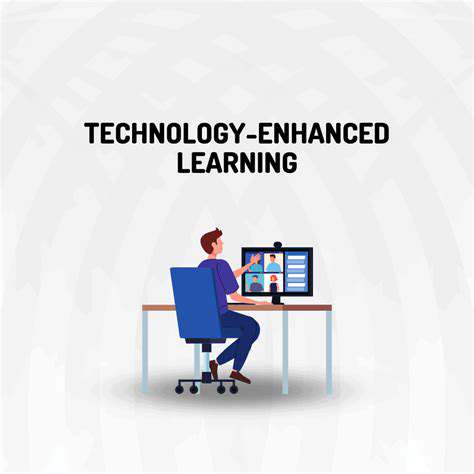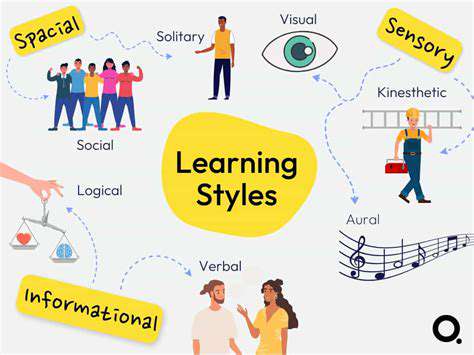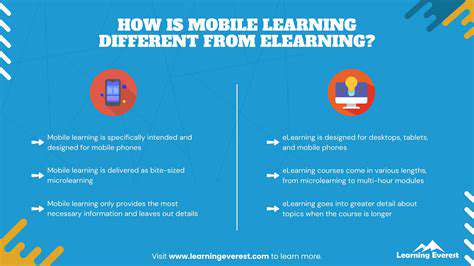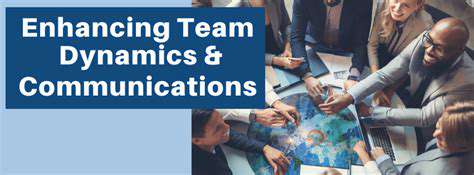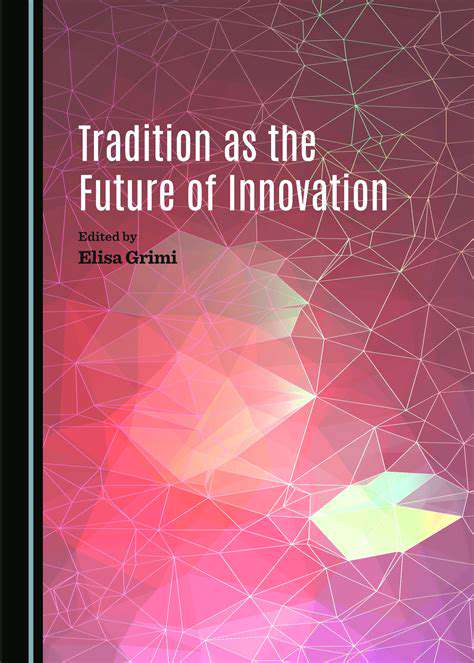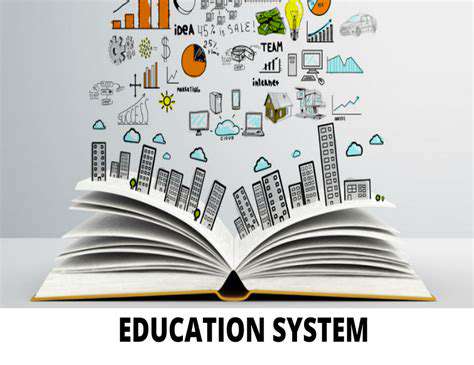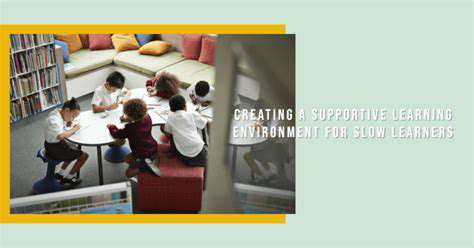Data Ethics in EdTech: Responsible Use of Student Information
The Growing Importance of Data Ethics in EdTech
Defining Data Ethics in EdTech
Data ethics in EdTech encompasses a multifaceted approach to responsible data collection, use, and sharing within educational technology. It's not just about avoiding legal pitfalls, but proactively ensuring fairness, transparency, and respect for individual privacy in the design and implementation of educational tools and platforms. This involves careful consideration of the potential biases inherent in data sets, the implications of algorithmic decision-making on student outcomes, and the need for informed consent and data security protocols.
Ethical considerations extend beyond the technical aspects of data management. They also encompass the social and cultural implications of using data in educational settings. For example, how can we ensure that data collection practices don't inadvertently exacerbate existing inequalities or marginalize certain student populations?
Addressing Bias in Educational Data
Educational datasets often contain inherent biases reflecting societal inequalities. These biases, if not carefully addressed, can perpetuate and amplify existing disparities in educational outcomes. For instance, algorithms trained on biased data might misclassify students from underrepresented groups, leading to inappropriate interventions or disproportionately impacting their learning experiences. Developing strategies to identify and mitigate bias in data collection and algorithm design is crucial to ensuring equitable access to quality education for all students.
Recognizing and addressing these biases requires a commitment to diverse and inclusive data sets. This involves actively seeking out and incorporating data from diverse student populations, ensuring that the data reflects the realities of all learners, and actively working to identify and correct any inherent biases in the data collection process.
Ensuring Transparency and Accountability
Transparency in data practices is paramount in EdTech. Students, parents, and educators need to understand how their data is being collected, used, and shared. Clearly defined data policies and procedures, accompanied by easily accessible explanations, can foster trust and ensure accountability. This also includes providing mechanisms for feedback and redress, allowing individuals to challenge or correct inaccurate data and to understand how their data is being used.
Protecting Student Privacy
Protecting the privacy of student data is a fundamental aspect of data ethics in EdTech. Robust security measures are crucial to prevent unauthorized access, misuse, or disclosure of sensitive information. Compliance with relevant privacy regulations, such as FERPA (Family Educational Rights and Privacy Act) in the United States, is essential. This also means implementing strong encryption, access controls, and data anonymization techniques to safeguard student information.
Furthermore, clear communication about data privacy practices is essential. Students and parents need to be informed about how their data is being collected, used, and protected. This includes providing clear consent procedures and outlining the potential risks and benefits associated with data sharing.
Promoting Responsible Data Use in Educational Innovation
The rapid advancement of educational technology presents exciting opportunities for innovation and improved learning outcomes. However, it's crucial to ensure that data is used responsibly to enhance learning, not to perpetuate existing inequalities. This means developing ethical guidelines for the use of data in educational technology and fostering a culture of ethical awareness among educators, developers, and policymakers. We must consider the long-term implications of data-driven interventions on student well-being and development, ensuring that data is used to empower and support students, not to control or categorize them.
Active collaboration between educational institutions, technology developers, and regulatory bodies is essential to establish ethical frameworks and best practices for leveraging data in education, ensuring that data-driven innovations serve the best interests of students and promote equitable access to quality education.
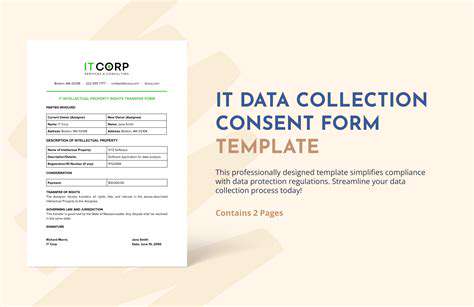
Accountability and Ethical Oversight in EdTech Development
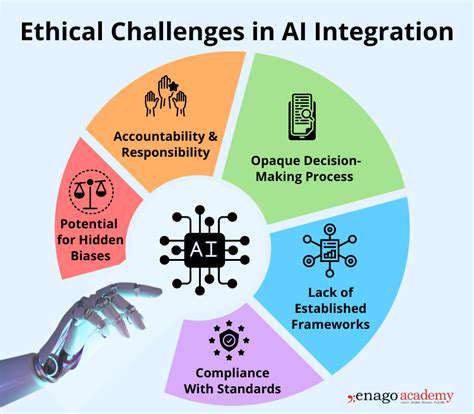
Accountability in Action
Accountability in a professional context goes beyond simply accepting responsibility for one's actions. It encompasses a proactive approach to ensuring that decisions and outcomes align with established ethical standards and organizational goals. This involves demonstrating transparency in processes, acknowledging mistakes promptly, and implementing corrective measures to prevent future occurrences. Accountability fosters trust and strengthens the foundation of a healthy and productive work environment. Furthermore, it instills a culture of responsibility within teams and organizations, encouraging everyone to take ownership of their contributions.
Taking ownership of mistakes, offering sincere apologies, and actively seeking solutions to rectify errors are all crucial elements of demonstrating accountability. This proactive approach not only repairs damaged relationships but also demonstrates a commitment to learning and improvement. Accountability is a cornerstone of ethical conduct and a key driver of organizational success.
Ethical Considerations in Decision-Making
Ethical decision-making is a critical aspect of accountability. It involves carefully considering the potential impact of choices on all stakeholders, including employees, customers, and the wider community. Evaluating decisions through an ethical lens necessitates understanding and adhering to relevant regulations, codes of conduct, and societal values. This nuanced approach requires a deep understanding of the ethical principles guiding the organization and a commitment to upholding them consistently.
Transparency and Open Communication
Transparency in communication is essential for fostering accountability. Open and honest communication channels allow for the free flow of information, enabling stakeholders to understand the rationale behind decisions and the potential consequences. This transparency builds trust and fosters collaboration, ensuring everyone feels empowered to address concerns and contribute effectively.
Open communication also allows for the identification and resolution of conflicts proactively, preventing them from escalating into larger issues. Open dialogue encourages constructive feedback and facilitates continuous improvement within the organization.
Consequences of Lack of Accountability
When accountability is lacking, trust erodes, leading to a decline in morale and productivity. Poor communication and a lack of transparency create an environment where issues are swept under the rug, and problems fester. This ultimately harms the organization's reputation and creates significant risks to its long-term sustainability.
Oversight Mechanisms and Procedures
Robust oversight mechanisms are crucial for ensuring accountability and ethical conduct. These mechanisms should encompass policies, procedures, and reporting structures that enable individuals to voice concerns, report violations, and seek assistance without fear of reprisal. Well-defined channels for reporting misconduct contribute significantly to a culture of accountability.
Implementing clear guidelines and procedures for handling complaints and investigations is essential for maintaining a high standard of ethical conduct. This also helps protect individuals who come forward with information about potential violations from retaliation or retribution. By establishing effective oversight, organizations can proactively address potential issues before they escalate.
Independent Review and Audits
Independent reviews and audits are vital for evaluating the effectiveness of accountability measures and ethical practices. They provide an objective assessment of processes and procedures, identifying areas where improvements are needed and ensuring that policies are being implemented effectively. This external perspective helps to maintain an unbiased evaluation of the organization's ethical standards and practices.
Independent audits can uncover blind spots and weaknesses in the existing systems, which may otherwise remain undetected. This proactive approach to identifying and addressing vulnerabilities helps to maintain a strong ethical foundation and prevents potential future problems. This approach to accountability is crucial.
The Role of Leadership in Fostering Accountability
Leaders play a critical role in setting the tone for accountability and ethical conduct within an organization. They must model ethical behavior, communicate expectations clearly, and create a culture where individuals feel empowered to report concerns without fear of repercussions. This includes actively supporting and rewarding individuals who demonstrate accountability and ethical behavior.
Strong leadership sets the standard for ethical conduct and fosters a culture of transparency and trust. A strong commitment to these values from leadership ensures that the entire organization embraces accountability and ethical decision-making as core principles. This fosters a positive and productive work environment.
Read more about Data Ethics in EdTech: Responsible Use of Student Information
Hot Recommendations
- The Gamified Parent Teacher Conference: Engaging Stakeholders
- Gamification in Education: Making Learning Irresistibly Fun
- The Future of School Libraries: AI for Personalized Recommendations
- EdTech and the Future of Creative Industries
- Empowering Student Choice: The Core of Personalized Learning
- Building Community in a Hybrid Learning Setting
- VR for Special Education: Tailored Immersive Experiences
- Measuring the True Value of EdTech: Beyond Adoption Rates
- Addressing Digital Divide in AI Educational Access
- Preparing the Workforce for AI Integration in Their Careers
